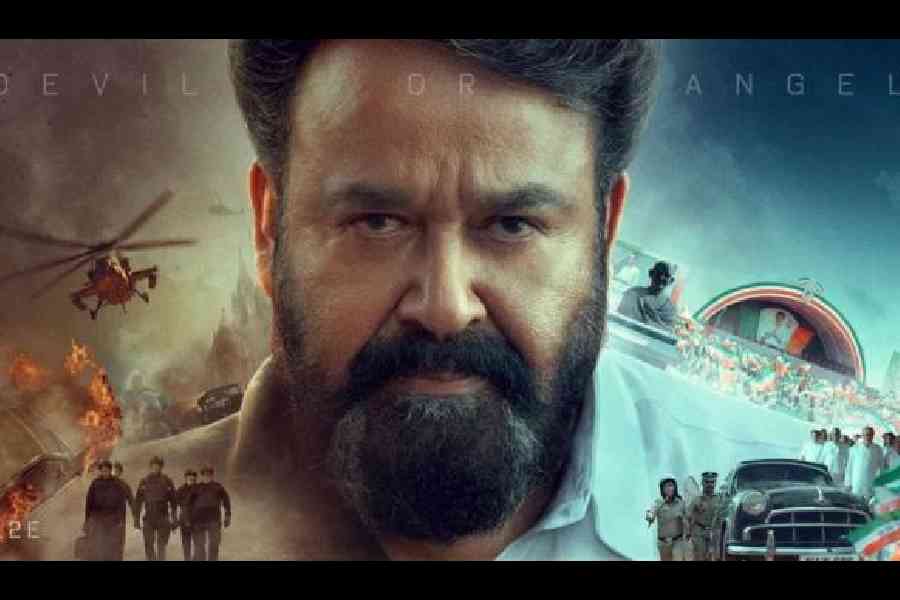When a dapper, well-spoken Parambrata Chatterjee steps into Mumbai to co-host the Critics’ Choice Awards with Neha Dhupia, there’s a whiff of East-West representation all evening. The winners range from US-based Punjabi artiste Diljit Dosanjh (Amar Singh Chamkila) to Team Poacher (directed by NRI Richie Mehta), the Kerala-based thriller with a jumbo-size heart that drew talent from all over the country — including Dibyendu Bhattacharya (Calcutta, Delhi, Mumbai), Nimisha Sajayan and Kani Kusruti (Kerala). To top it all, a Gender Sensitivity Award to Richa Chaddha and her gang of Girls Will Be Girls. There’s a splendorous splash of all-India colours.
While that works for an awards function hosted by the Film Critics Guild (of which I am a founder-member), is it premature to assume that cinema has been able to blur all parochial borders and that we have become one entity called the Indian film industry? Or, are a two-part Baahubali (2015 and 2017) and a two-part Pushpa (2021, 2024) — with a third installment in the works — rare instances that do not definitively define all-India acceptance? For example, if a clean-shaven Allu Arjun were to stroll down the streets of Gorakhpur or Malda, what are the chances of him being recognised or mobbed? Nil, I’d think, unlike Shah Rukh, Salman or even Kartik Aaryan, who will draw attention almost anywhere in India.
For more recent, tangible proof, Empuraan made it to all the primetime slots on national TV, which got further amped with a communal and political debate over it. But at the box office, did Prithviraj and Mohanlal — the heartthrobs and thespians of Malayalam cinema — win a wide audience beyond the shores of Kerala? Both actors had dabbled in Hindi cinema many times but had thus far not triumphed outside their state. Mohanlal was famously seen in Ram Gopal Varma’s Company way back in 2002 and in a few insignificant Hindi films thereafter. While he’s respected all over the country, his commercial reach has remained confined to Kerala. Prithviraj tried to become a Hindi film hero opposite Rani Mukherjee in Aiyyaa (2012) and played villain in Naam Shabana (2017) and Bade Miyan Chote Miyan (2024). But Kerala was where he saw stardom and success as actor, filmmaker and film distributor.
When Prithviraj, director of the crowd-pulling Malayalam franchise Lucifer, made a lavish ₹180 crore sequel titled L2: Empuraan, he described it as an “Indian” film that would breach the boundaries of regional cinema and put us on the global map. But the numbers make it seem like wishful thinking. On Day 2, there was an audience of five including moi in the 326-seat auditorium at PVR Juhu for the Hindi version of Empuraan, despite the free front-page publicity it received over its “contentious” content.
While censoring a film after CBFC clearance calls for a discussion, what is beyond debate is that the slickly directed Empuraan did its best business only in Kerala. It raised the bar for Malayalam cinema, not for Indian cinema.
Interestingly, while even Rajinikanth and Kamal Haasan have stayed tsars of the Tamizh territory and have never conquered other parts of India, it is only R. Madhavan who has clambered to a position of power in the North and in the South. Maddy was a weighty railway official in The Railway Men (2023), YRF’s mini-series on the Bhopal Gas Tragedy, the scene-stealing Shaitaan in Ajay Devgn’s film last year, the spirited number-crunching hero of Hisaab Barabar this year, the main player in Netflix’s new Tamizh film Test that weaves obsession and choice into a thriller with a fictitious Indo-Pak test match in the background. He will once again switch tongues to lock horns
with Akshay Kumar in Kesari Chapter 2, coinciding with the Jallianwala Bagh genocide that happened 99 years ago on Baisakhi.
It makes Maddy the only uniquely positioned pan-India actor of the day.
Bharathi S. Pradhan is a senior journalist and an author










